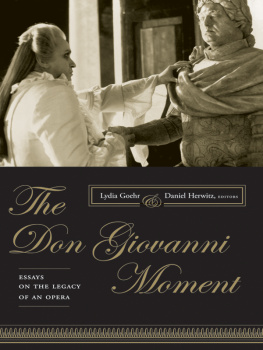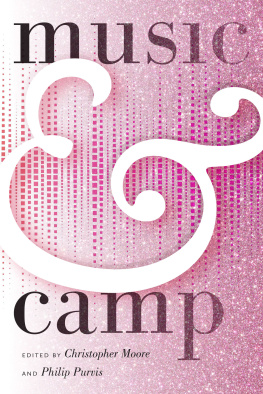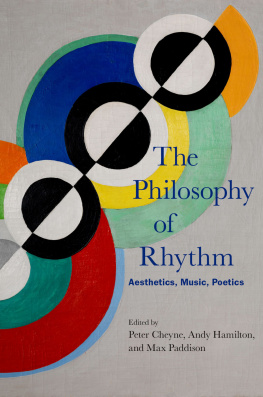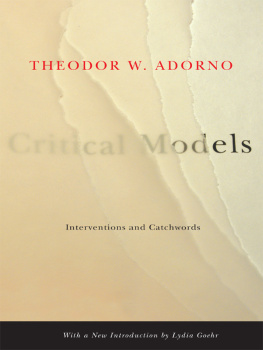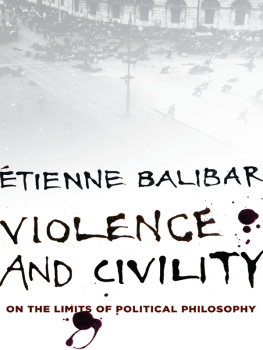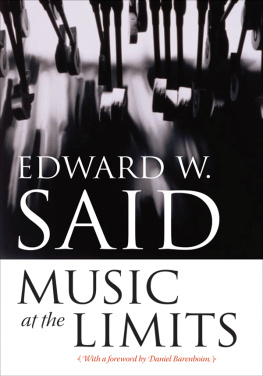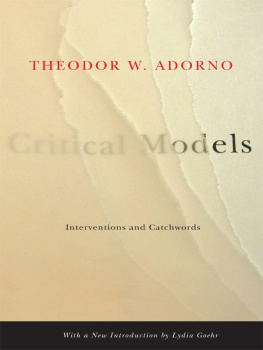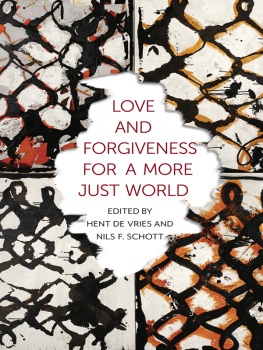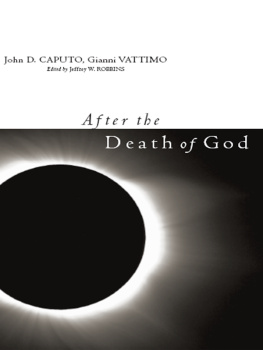The Don Giovanni Moment
COLUMBIA THEMES IN PHILOSOPHY, SOCIAL CRITICISM, AND THE ARTS
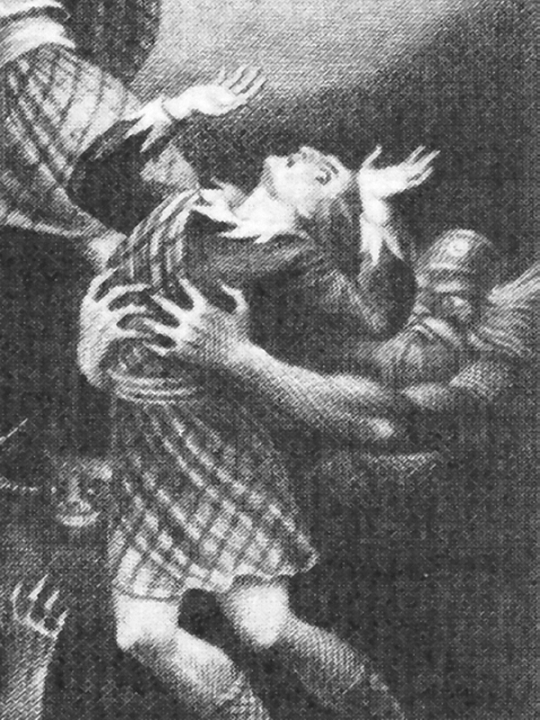
[Detail] Engraving by J. H. Ramberg, c. 1830. See .

Columbia University Press
Publishers Since 1893
New York Chichester, West Sussex
cup.columbia.edu
Copyright 2006 Columbia University Press
All rights reserved
E-ISBN 978-0-231-51064-6
Library of Congress Cataloging-in-Publication Data
The Don Giovanni moment : essays on the legacy of an opera / editors, Lydia Goehr and Daniel Herwitz.
p. cm.(Columbia themes in philosophy, social criticism, and the arts)
Includes bibliographical references.
ISBN 0-231-13754-0 (alk. paper)ISBN 0-231-51064-0 (ebook)
1. Mozart, Wolfgang Amadeus, 17561791. Don Giovanni.
2. Don Juan (Legendary character) in literature.
3. Music and literature. 4. Opera. I. Goehr, Lydia.
II. Herwitz, Daniel Alan, 1955 III. Series.
ML410.M9D63 2006
782.1dc22 2005033481
A Columbia University Press E-book.
CUP would be pleased to hear about your reading experience with this e-book at .
COLUMBIA THEMES IN PHILOSOPHY, SOCIAL CRITICISM, AND THE ARTS
Lydia Goehr and Gregg M. Horowitz, editors
Advisory Board
| J. M. Bernstein | Eileen Gillooly |
| Nol Carroll | Thomas S. Grey |
| T. J. Clark | Miriam Bratu Hansen |
| Arthur C. Danto | Robert Hullot-Kentor |
| Martin Donougho | Michael Kelly |
| David Frisby | Richard Leppert |
| Boris Gasparov | Janet Wolff |
Columbia Themes in Philosophy, Social Criticism, and the Arts presents monographs, essay collections, and short books on philosophy and aesthetic theory. It aims to publish books that show the ability of the arts to stimulate critical reflection on modern and contemporary social, political, and cultural life. Art is not now, if it ever was, a realm of human activity independent of the complex realities of social organization and change, political authority and antagonism, cultural domination and resistance. The possibilities of critical thought embedded in the arts are most fruitfully expressed when addressed to readers across the various fields of social and humanistic inquiry. The idea of philosophy in the series title ought to be understood, therefore, to embrace forms of discussion that begin where mere academic expertise exhausts itself, where the rules of social, political, and cultural practice are both affirmed and challenged, and where new thinking takes place. The series does not privilege any particular art, nor does it ask for the arts to be mutually isolated; we encourage writing from the many fields of thoughtful and critical inquiry.
Dedicated to Bernard Williams
NIKOLAUS BACHT received his education in music and philosophy and his doctorate from Kings College, London, in 2002 with a dissertation entitled Music and Time in Theodor W. Adorno. He has held doctoral research positions at Harvard and Cambridge Universities and is currently a postdoctoral Research Fellow at Kings College, Cambridge. He is continuing to work and write on aesthetics, music, and the history of ideas.
RICHARD ELDRIDGE is professor of philosophy at Swarthmore College. He is the author of On Moral Personhood (1989), Leading a Human Life: Wittgenstein, Intentionality, and Romanticism (1997), The Persistence of Romanticism (2001), and, most recently, An Introduction to the Philosophy of Art (2003).
BORIS GASPAROV is professor of Slavic languages and literatures at Columbia University. He is the author and coeditor of (among others): Cultural Mythologies of Russian Modernism (1988), Christianity and the Eastern Slavs, 3 vols (1989), Pushkins Poetic Language (1992, 2000), Language and Memory (1996), Five Operas and a Symphony: Words and Music in Russian Culture (2005).
LYDIA GOEHR is professor of philosophy at Columbia University. She is the author of The Imaginary Museum of Musical Works (1992) and The Quest for Voice: Music, Politics, and the Limits of Philosophy (1998). In 1997 she was the Ernest Bloch Professor in the Music Department at the University of California, Berkeley, where she gave a series of lectures on Richard Wagner. In 20022003 she was the Aby Warburg Professor in Hamburg and a fellow at the Wissenschaftskolleg zu Berlin. She is currently completing a book on the relationship between philosophy and music in the work of Theodor W. Adorno entitled Notes to Adorno.
THOMAS S. GREY received M.A. and Ph.D. degrees in music from the University of California, Berkeley, and has taught at UCLA and Stanford Universities. Since 1997 he has been associate professor of music at Stanford University. He is the author of Wagners Musical Prose: Texts and Contexts (1995) and editor and coauthor of the Cambridge Opera handbook on Wagners Flying Dutchman (2000), and a forthcoming Cambridge Companion to Wagner. His current projects include a book on music and visual culture in the nineteenth century and editing a two-volume history of opera for Cambridge University Press. He served as editor of the Journal of the American Musicological Society from 1999 through 2001.
AGNES HELLER was a friend and student of Georg Lukacs. She rose to fame in postwar Europe for her work in Marxian theory and moral and political philosophy. After active involvement in the Hungarian Revolution, she was dismissed from her academic position. In 1977 she emigrated to Australia. She taught in Germany and America, after which she accepted a position, which she still holds, in the Graduate Faculty Department of Philosophy at the New School for Social Research in New York. After 1989 she was elected to the Hungarian Academy of Sciences. Since then she has split her teaching between Budapest and New York. The recipient of numerous academic prizes, she has been the subject of several documentaries and is the author of more than twenty books.
DANIEL HERWITZ is director of the Institute for the Humanities and Mary Fair Croushore Professor of Humanities at the University of Michigan. A six-year residence in South Africa led to his most recent publication, a book on the South African transition, Race and Reconciliation (2003). He has written on many subjects in philosophical aesthetics and avant-garde art.
BERTHOLD HOECKNER is associate professor of music and the humanities at the University of Chicago. He was educated in Germany, England, and at Cornell University. In 1997 he won the Albert Einstein Award of the American Musicological Society for the best article published by a younger scholar. His book Programming the Absolute: Nineteenth-Century Music and the Hermeneutics of the Moment was published in 2002.
PHILIP KITCHER is professor of philosophy at Columbia University. He is the author of many articles and seven books, the most recent of which are Science, Truth, and Democracy (2001) and In Mendels Mirror: Philosophical Reflections on Biology (2003).
ERNST OSTERKAMP is professor of German literature at the Humboldt-Universitt zu Berlin. His books include Lucifer: Stationen eines Motivs (1979), Im Buchstabenbilde: Studien zum Verfahren Goethescher Bildbeschreibungen (1991), and Rudolf Borchardt und seine Zeitgenossen (1997). He is currently completing a book on the poetry of Stefan George.
Next page
